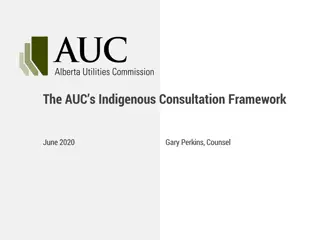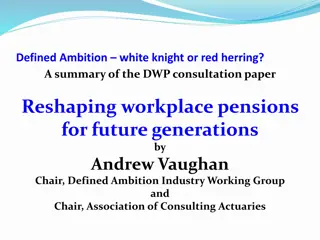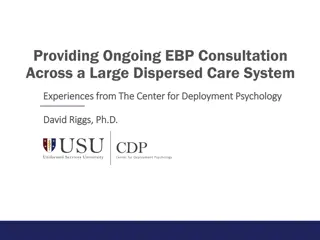
Understanding Social Care Policies: Co-op Party Consultation 2021
Dive into the policy consultation process of the Co-operative Party for 2021, focusing on the urgent need for social care reform. Explore why social care matters, the meaning of social care, and how it differs across England, Northern Ireland, Wales, and Scotland. Understand the impact of social care devolution and the challenges facing the social care sector. Get informed about the policy-setting process and how you can contribute to shaping future social care initiatives.
Download Presentation

Please find below an Image/Link to download the presentation.
The content on the website is provided AS IS for your information and personal use only. It may not be sold, licensed, or shared on other websites without obtaining consent from the author. If you encounter any issues during the download, it is possible that the publisher has removed the file from their server.
You are allowed to download the files provided on this website for personal or commercial use, subject to the condition that they are used lawfully. All files are the property of their respective owners.
The content on the website is provided AS IS for your information and personal use only. It may not be sold, licensed, or shared on other websites without obtaining consent from the author.
E N D
Presentation Transcript
Policy consultation 2021: Social care coopparty
Policy process 2021 Our policy platform sets the agenda for our party and its representatives, and puts forward our to-do list for Parliament. In the tradition of co-operation, our policy process is member-led and this is your opportunity to shape the ideas we ll take to all levels of government. Your contributions will be collected and considered by the NEC s policy sub- committee, who use your ideas and feedback to shape policy proposals. These will be brought to the Co-operative Party annual conference in the Autumn for delegates to debate and vote on.
Why social care? Policy sub-committee chose the topic Social Care because of the urgent need for reform in this sector. Our social care system has pushed to breaking point certainly by the Covid crisis, but it was not in good shape before Covid hit either. The market in social care services incentivises a race to the bottom on quality and workforce conditions, a lack of accountability, and de- personalisation of services. There are significant financial pressures on the social care sector, thanks to increasing demand for care at a time when funding for local government and social care services has been slashed by Westminster. This has been exacerbated by the coronavirus outbreak.
Social care & devolution Social care is devolved this means Westminster only make decisions about social care in England while the devolved governments in Wales, Northern Ireland and Scotland make decisions on how social care is delivered in their nations. But that is not to say that decisions made on social care in England would have no bearing at all on policy in Wales, Scotland or Northern Ireland. If the UK government decided that the state should contribute less and that a higher proportion of the social care budget in England should be paid for by the personal savings and incomes of individuals receiving care and their families, then that could result in less money being allocated to devolved nations from Westminster through the Barnett funding formula.
Comparing social care in England, Northern Ireland, Wales & Scotland Social care is much more integrated in Northern Ireland. There are five health and social care trusts, which assess the help people need. For people over the age of 75 most care in the home is provided free. Those who are under the age of 75 may have to pay towards their care. Any charges are at the discretion of the local trust. The Community Care and Health (Scotland) Act 2002 introduced free personal care for adults. However, such care is only available to those assessed as needing is, so when local authority finances are stretched and/or as need increases, someone assessed as needing care in more affluent times may not be deemed eligible when times are tougher. Health & social care integration has been law since 2014. The Welsh Government sets national policy and local authorities are responsible for planning & commissioning social care. Each has a degree of flexibility about what care services are charged for and to what level. In England, social care is the responsibility of local commissioners mainly based in local councils. Local authorities individually decide what they will spend. There is no national budget though councils are constrained by the overall funding they get from Westminster. In 2018/19, total expenditure on adult social care by local authorities was 22.2 billion, 800 million higher than the year before. But, adjusting for inflation, this is still 300 million below the level it was in 2010/11, despite increasing demand for services. The Social Services and Well-being (Wales) Act 2014 aims to make social services sustainable through a renewed focus on prevention and early intervention. Also relevant is the Well- being of Future Generations (Wales) Act 2015 which seeks to improve social, economic, environmental & cultural well-being. In June last year the Health and Social Care (Quality and engagement) (Wales) Act became law. It will strengthen the voice of citizens & ensure greater accountability from 2022.
Why is healthcare free but social care isn t? Social care has never been free to all. In 1948, when the NHS was established, the collective financial risk was pooled across the population. Social care, such as care for older people and adults with disabilities, was not included it was then, and still is, means tested. In the 1940s there was no definition for what we now think of as social care. Doing the right thing in terms of public health and care just didn t work that way. The links between poverty and poor health were the striking preoccupation that led to the NHS, and the main focus was on improving the health of the nation to remove that inequality. Social care s heritage, on the other hand, goes back to Victorian Poor Laws, and centred on local responsibility for looking after those who were without financial means.
How much does it cost? Today, what is free and what we pay for varies based on where you live. In Northern Ireland, any charges are at the discretion of the local trust. If someone needs to be looked after in a care home or nursing home, those with assets of over 23,250 pay for the full cost of their care. Those with less may be entitled to some help - and everyone gets to keep at least 14,250 of assets. In England, anyone with assets over 23,250 is expected to contribute to costs. In Wales the threshold is 24,000 but no-one who is eligible for care at home is expected to pay more than 90 a week towards it. Scotland provides free personal care for people who are assessed as needing support, whatever their age. In a care home, people receive 177 a week towards their fees, but if they have savings or assets above 28,000, they will have to fund the remaining costs. And to make matters more complicated, the fees that local authorities and individuals pay for the same sort of services varies massively depending on where you live too. This map shows the variation in the average cost of a care home in England each week, for example.
Some challenges facing the sector: Demand for services Demand is going up, while funding is going down. While the number of older people asking for council help has increased, fewer now qualify for support in their own home or in care homes. Age UK estimates there are 1.5 million people in England who need help with day-to-day life, but do not receive it. The number of working age adults needing care in rising a third are between 18-65 but the cost of their care is around half the total budget as they often require more intensive support. Many of these people, given their age, have not been able to build up savings to contribute. An ageing population increases the pressure on the system. For example, the number of people with dementia in the UK is expected to more than double by 2040.
Some challenges facing the sector: Funding The social care system has long been under-resourced as government cuts local authority budgets have failed to keep pace with the demographic pressures of rising numbers of older and disabled people with complex care needs. Around 1 in 10 people aged 65 or over face care costs of 100,000 or more. Self-funders are often charged more for care than local councils an estimated 41% more in fees in fact! Pressure on council finances mean many pay providers less than they need to deliver quality care, leading some to hand back contracts or go out of business, threatening the supply of publicly funded care to the people who need it.
Some challenges facing the sector: The market system The marketisation of social care has moved provision from a public service provided by local authorities, to a public services industry which serves the profit-driven motives of private capital The market system is unaccountable and too often profits come before people Covid-19 highlighted how many private providers failed the very people they were meant to care for. Some areas experience care deserts in these areas, even if you have money to spend on care you will be unable to get it. The Competition and Markets Authority reported that the market-based approach to social care was unsustainable without additional public sector funding
Some challenges facing the sector: Staff pay and conditions Social care workers are low paid. There is high churn & vacancies are increasing. The sector has a diversity problem. Workers from BAME backgrounds make up over 20% of all jobs but only 5% of board members are BAME. A quarter working in the sector are on zero hours contracts & issues like not being paid for the travel time between appointments puts further downwards pressure on wages. Leaving the EU means an end to freedom of movement which may make it even harder to find and recruit staff to work in the sector. Covid-19 is having a devastating impact on people working in social care. Care workers have twice the rate of death due to Covid-19 compared to the general population.
Some challenges facing the sector: Impact on the NHS A shortage of care places often results in older people having to stay in hospital longer this is bad for their health and wellbeing, as well as causing difficulties for overstretched hospitals where beds are in short supply. A lack of social care provision led to 2.5 million lost bed days in the NHS between the 2017 and 2019 UK general elections. The social care crisis has a damaging knock-on impact on the NHS as it means higher emergency admissions to hospital and NHS help needed for illness and injury that could have been prevented with the correct care in place.
Ministers were warned our social care sector was highly vulnerable. When so many have died in care settings, people deserve answers and ministers must respond. There hasn t been the swift action promised to protect care homes. It s been negligent Jonathan Ashworth MP, Labour & Co- operative Shadow Health and Social Care Secretary






















